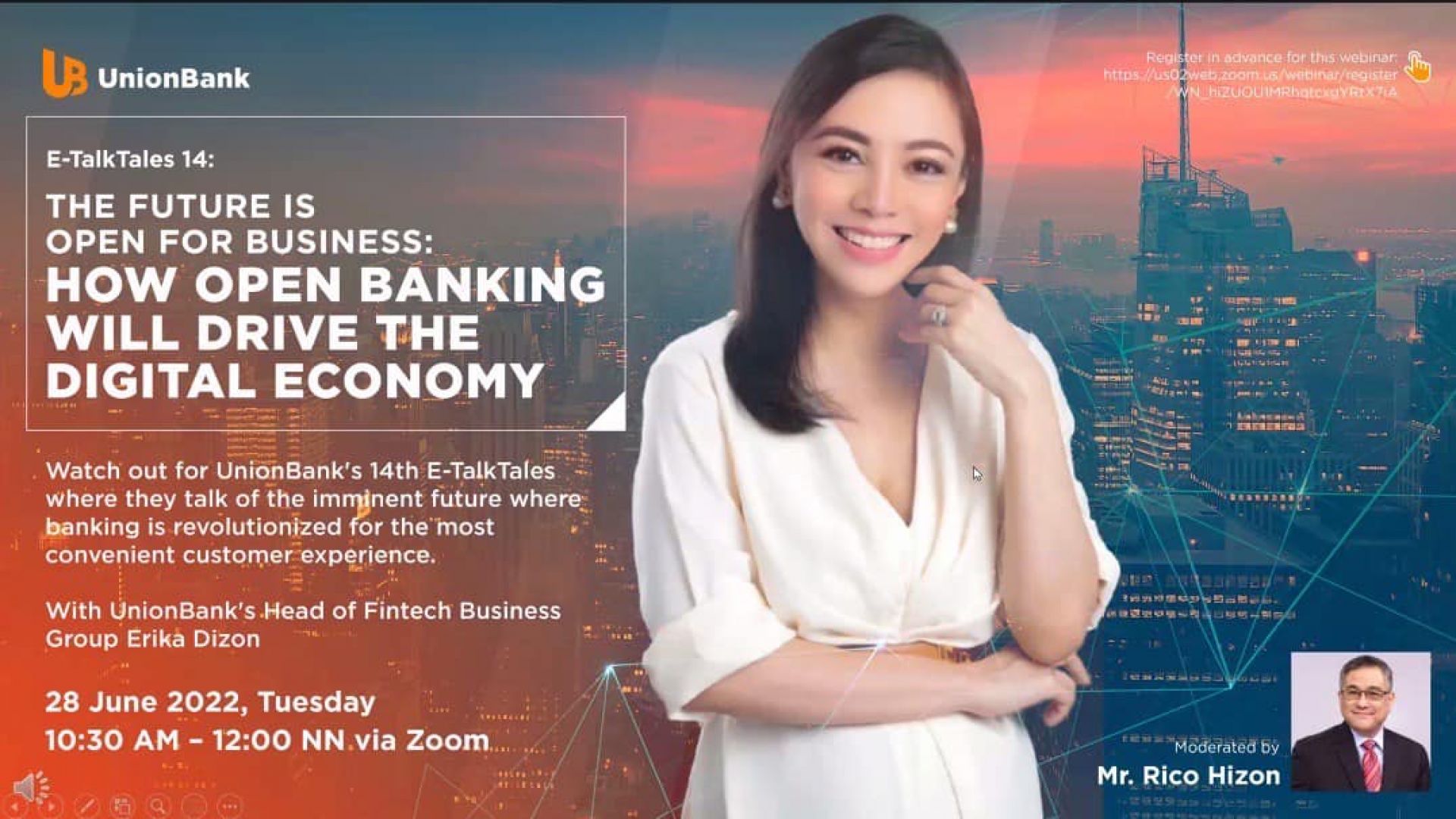Open banking and open finance are two models that are now slowly taking over the financial sector, with the promise of revolutionizing banking and financial services like never before and acting as “a catalyst for the new wave in financial innovation.”
This was the main point of discussion during the 14th edition of Union Bank of the Philippines’ (UnionBank) virtual roundtable series E-TalkTales, which took place last June 28 via Zoom. The event was led by UnionBank’s Fintech Business Group Head Erika Dizon as its main speaker.

In her presentation, Dizon explained that while open banking and open finance may differ slightly from each other—the former promotes data sharing on banking services, while the latter promotes data and capability sharing across the financial sector—the goal is the same, which is the creation of an open ecosystem.
An open ecosystem, she said, provides numerous benefits, including seamless data access and sharing, more opportunities for cooperation and collaboration, and most importantly, unprecedented customer-centricity. All of these point to the potential of the movement to completely change the way people see banking and finance.
Dizon listed down a few examples of how the open finance movement can positively impact different sectors of society. For service providers, it can inspire innovation and create new revenue streams. For businesses, it can promote increased transparency and operational efficiency. For customers, it can help enable better personalization, and in turn more meaningful experiences.
Dizon also named several pillars supporting open banking, namely, (1) regulatory push for frameworks built on principles of consent, interoperability, and collaboration; (2) heightened expectations coming from the digital and modern social experiences that are redefining banking and finance; (3) competition especially with the emergence of non-traditional players; and (4) infrastructure, which is increasingly becoming more reliant on application programming interfaces.
“All of these factors are coming in to play and have triggered the open banking and open finance movement and the beginning of the unbundling of the traditional banking models,” Dizon said.

After her presentation, Dizon participated in a fireside chat with the event’s moderator, veteran journalist Rico Hizon. One of the questions that she answered was on data privacy, which is currently one of the biggest concerns related to open banking and open finance. She reiterated that, at the core of open banking, there should be customer consent, where end users can have the choice to share their data or not, and limit how much of their data is used.
Another topic discussed during the chat was balancing competition with collaboration, especially since open ecosystems require the latter for them to truly serve their purpose. She said that for UnionBank, rather than competing, the focus is more on “coopetition,” adding that there is a place for different industry players to benefit from a win-win-win model.
“We understand that some financial institutions, some fintechs, some third parties have specific products and services that we don’t, and we believe that for us to be able to better serve our customers, we should be able to integrate those specific products and services into our own,” Dizon said.
“Open banking and open finance are only as good as the number of players that cooperate within that ecosystem, and that’s, I think, one of the biggest things that we have to consider.”
On the topic of how open banking and open finance can create more value for UnionBank, she said that these allow the Bank to identify new potential business models, and with these, generate more income streams and revenue models.
“More importantly, it adds value to our customers and how they do their financial transactions, and that is what’s really important to us,” Dizon said. “Of course, as a bank, there is a bottom line that we need to think of, but we believe that there is a space for both to co-exist, for the customers to be served appropriately and for the Bank to be able to have new business models.”





